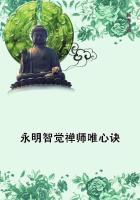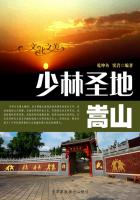Once the crisis were past, the ruling class, still holding the curb in order to make itself more secure, would proceed to readjust things and to balance consumption with production.Having a monopoly of the safe investments, the great masses of unremunerative capital would be directed, not to the production of more surplus value, but to the making of permanent improvements, which would give employment to the people, and make them content with the new order of things.Highways, parks, public buildings, monuments, could be builded; nor would it be out of place to give better factories and homes to the workers.Such in itself would be socialistic, save that it would be done by the oligarchs, a class apart.With the interest rate down to zero, and no field for the investment of sporadic capital, savings among the people would utterly cease, and old-age pensions be granted as a matter of course.It is also a logical necessity of such a system that, when the population began to press against the means of subsistence, (expansion being impossible), the birth rate of the lower classes would be lessened.
Whether by their own initiative, or by the interference of the rulers, it would have to be done, and it would be done.In other words, the oligarchy would mean the capitalization of labor and the enslavement of the whole population.But it would be a fairer, juster form of slavery than any the world has yet seen.The per capita wage and consumption would be increased, and, with a stringent control of the birth rate, there is no reason why such a country should not be so ruled through many generations.
On the other hand, as the capitalistic exploitation of the planet approaches its maximum, and countries are crowded out of the field of foreign exchanges, there is a large likelihood that their change in direction will be toward socialism.Were the theory of collective ownership and operation then to arise for the first time, such a movement would stand small chance of success.But such is not the case.The doctrine of socialism has flourished and grown throughout the nineteenth century; its tenets have been preached wherever the interests of labor and capital have clashed; and it has received exemplification time and again by the State's assumption of functions which had always belonged solely to the individual.
When capitalistic production has attained its maximum development, it must confront a dividing of the ways; and the strength of capital on the one hand, and the education and wisdom of the workers on the other, will determine which path society is to travel.It is possible, considering the inertia of the masses, that the whole world might in time come to be dominated by a group of industrial oligarchies, or by one great oligarchy, but it is not probable.
That sporadic oligarchies may flourish for definite periods of time is highly possible; that they may continue to do so is as highly improbable.The procession of the ages has marked not only the rise of man, but the rise of the common man.From the chattel slave, or the serf chained to the soil, to the highest seats in modern society, he has risen, rung by rung, amid the crumbling of the divine right of kings and the crash of falling sceptres.That he has done this, only in the end to pass into the perpetual slavery of the industrial oligarch, is something at which his whole past cries in protest.The common man is worthy of a better future, or else he is not worthy of his past.
NOTE.--The above article was written as long ago as 1898.The only alteration has been the bringing up to 1900 of a few of its statistics.As a commercial venture of an author, it has an interesting history.It was promptly accepted by one of the leading magazines and paid for.The editor confessed that it was "one of those articles one could not possibly let go of after it was once in his possession." Publication was voluntarily promised to be immediate.Then the editor became afraid of its too radical nature, forfeited the sum paid for it, and did not publish it.Nor, offered far and wide, could any other editor of bourgeois periodicals be found who was rash enough to publish it.Thus, for the first time, after seven years, it appears in print.















